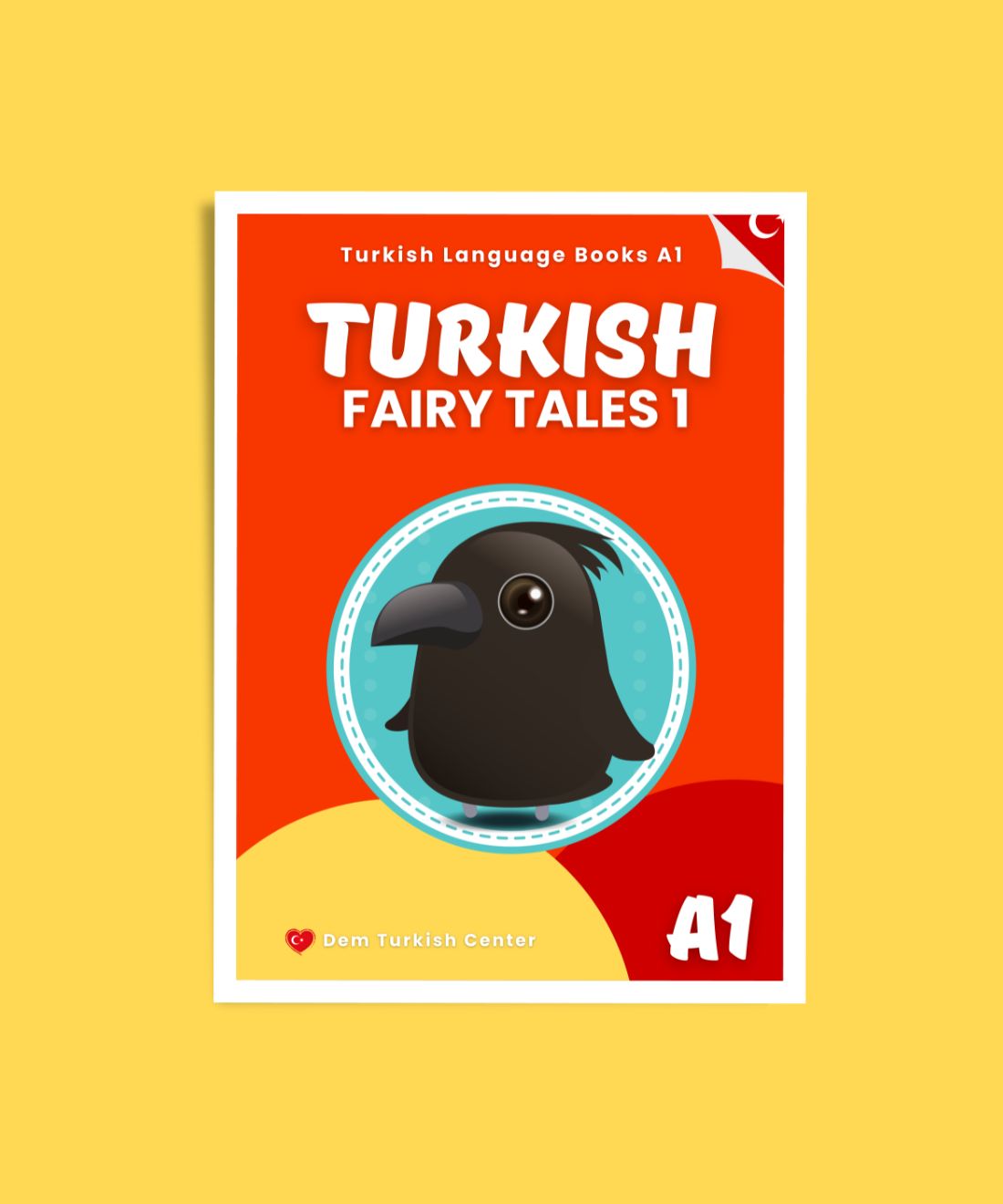
Everyday Turkish words and phrases
Learn everyday Turkish words, phrases and expressions!
Do you want to learn everyday Turkish words and phrases? We made a list of most common Turkish words and phrases for you. Feel free to add yours or even use the form to get help for translation and explanation.
The List of everyday Turkish words and phrases:
- Affedersin. Excuse me; I am sorry. “Affedersiniz” is more formal. The French word “pardon” is also used commonly.
- Afiyet olsun. Good appetite. It is said to those who eat or drink, or who is served, or when arriving or leaving the dinner table.
- Aleyküm selam. See Selamın Aleyküm below.
- Bakar mısın? "Excuse me” used to take attention of people. Literally it means Can you look? Also Bakar mısınız? is more polite. It is quite possible to hear people say Bakar mısınız? at the cafés and restaurants to take waiter’s attention.
- Başın sağ olsun. An expression said to people whose relative died: “May your life be spared (formula of condolence)”.
- Be! Oh, you! Hey, you! (Used vocatively to express reproach); Hey! (Used in a terminal position) e.g. Tamam be! Hadi be! Sus be!
- Bi dakka. Bir dakika, wait a minute, hold on a minute, hold on.
- Buyurun. Welcome, come in, this way; How can I help? Can I help; Here you are, here is your… It’s one of the most common words that people use all the time and usually used as Buyrun by omitting “u” in the middle.
- Çok yaşa. Bless you (when someone sneezes). Literally it means “Live long”. The answer to this expression is either “Sen de gör” (You too / I hope you will also see it) or “Hep beraber”(altogether).
- Dikkat! An expression used to warn people: Attention! Careful! Notice! Look out!
- Eyvallah. An expression meaning good bye, so long. It is mostly used for “thanks” (Sağ ol) or “all right” in an informal way in Turkish.
- Falan A word used for something that is forgotten, unnecessary or not want to say; around, approximately, or so; and such, and so forth, and so on, et cetera.
- Falan filan So and so, such and such, and people such as they, and that a lot.
- Fena değil. Not bad, not so bad.
- Gerçekten mi? Really? Is that so?
- Görüşürüz. See you.
- Güle güle. Goodbye, literally go smiling, happily. It is also used when someone buys a new thing: Güle güle kullan meaning Use it happily, smiling. Enjoy it.
- Günaydın. Good morning, literally bright day.
- Haydi! Come on! (used to spur someone on) e.g. Hadi Ali! (Come on, Ali!); Come off it, nonsense e.g. Hadi be, beni aptal mı sandın? (Come off it man, do you take me for a fool?)
- Hayırlı işler. An expression said while leaving a shop for good wish. Also İyi işler. Literally it means “Have good work/I hope you have good work”.
- Helal olsun. It´s all yours! Take it with my blessing (and enjoy it)! Bravo! Good for him!
- Hoşça kal. Good bye, stay well. Today people tend to use “bye” or “bye bye” more.
- Hoş bulduk. Thank you (said in reply to a welcoming greeting). Literally it means “well found”.
- Hoş geldin. Welcome (said to an arriving guest).
- Hoşt! Noise made to frighten away dogs.
- İmdat! Help.
- İnecek var. An expression said on a dolmuş or minibus before getting off. Literally it means There is someone to get off. Make sure you say it right, because the typical mistake made by foreigners is “İnek var” which means There is a cow.
- İnşallah. Godwilling, hopefully, I hope that… I hope so, if nothing unforseen happens, if God allows.
- İyi akşamlar. Good evening, have a nice evening. This expression is used when you arrive and leave.
- İyi eğlenceler. Have fun, have a nice time, enjoy.
- İyi geceler. Good night.
- İyi günler. Good day, have a nice day good afternoon. This expression is used when you arrive and leave.
- Kendine iyi bak. Take care of yourself.
- Koçum. Buddy, man, mate, literally it means “my ram”. Some male İstanbullu call their friends as “Koçum”.
- Kolay gelsin. I hope it will go smoothly. An expression said to someone who starts or plans to do any job.
- Kuçu kuçu. Noise made to call dog.
- Kusura bakma. Sorry, I hope you’ll pardon me, Please overlook what I’ve said or done.
- Kutlu olsun. May … be blessed e.g. Bayramın kutlu olsun (May your Bayram be blessed) Doğumgünün kutlu olsun (Happy birthday). Also mübarek olsun. “Mübarek olsun” has a religious sense whereas “kutlu olsun” is both used for religious occasions and good wishes for something new, birthday etc.
- Lütfen. Please. According to a popular belief, Turks don’t use “please” much but actually it is usually used in the form of the language e.g. Otur (Sit) Oturun (Sit please).
- Maalesef. Unfortunately, I am afraid. Also ne yazık ki in Turkish.
- Maazallah. Godforbid.
- Maşallah. Wonderful, magnificent, just look at that; May God preserve him from evil; Wonders never cease! (Said to indicate surprise).
- Memnun oldum. Pleased to meet you.
- Merhaba. Hello.
- Mersi. Thank you in French. It is not used widely today but it is one of the expressions used by "high class" people.
- Mesela. For example.
- Mübarek olsun. May … be blessed e.g. Bayramın mübarek olsun (May your Bayram be blessed). Also kutlu olsun. “Mübarek olsun” has a religious sense whereas “kutlu olsun” is both used for religious occasions and good wishes for something new, birthday etc.
- Müsade eder misin? Excuse me, If I may. Also Müsaade eder misiniz? is more polite.
- N’aber? What’s new? What’s up? How are you doing? Literally “What’s the news?”
- Nasıl gidiyor? How is it going? How are things?
- Nasılsın? How are you? Also Nasılsınız is more polite.
- Ne demek? What does it mean?
- Ne var ne yok? What’s new?
- Oha! Stop! Whoa (to stop an animal or someone who is thought to act like an animal)
- Öyle mi? Is that so? Really?
- Özür dilerim. I am sorry. I apologize.
- Pardon. Pardon me; excuse me; sorry.
- Pisi pisi! Noise made to call cats.
- Pist! Noise made to frighten away cats.
- Rica ederim. You’re welcome.
- Rica etsem... Could you please…? Used for polite request and literally it means Could you… if I request? e.g. Rica etsem yardım edebilir misiniz?
- Sağ ol. Thanks, informal way of saying Thank you.
- Sakıncası yoksa... Do you mind…? Would you mind…? e.g. Sakıncası yoksa … yapabilir misiniz?
- Selam. Peace; hello, hi.
- Selamın aleyküm. A way of saying hello mostly used by religious people meaning “May you have God’s peace over you”. The answer is Aleyküm selam.
- Seni seviyorum. I love you.
- Şerefe. Cheers, literally to honour. Also şerefine to your honour, sağlığına to your health.
- Şöyle böyle. So so, fair to middling.
- Tabii. Certainly, of course.
- Tebrikler. Congratulations. Also Tebrik ederim.
- Teşekkür ederim. Thank you. Also Teşekkürler (Thanks) and Çok teşekkür ederim (Thank you very much).
- Ulan / lan. An expression used for anger; Hey you / Hey! Now look here!
- Üstü kalsın. Keep the change.
- Valla (Vallahi)! I swear to God; honestly. Also valla billa (vallahi billahi).
- Yapma ya? Really? Come on! I don’t believe you. Also Hadi ya? Yok ya?
We hope you have found this list of most common everyday Turkish words and phrases useful. Please feel free to comment below if you have any questions.
BECOME A DEM TURKISH CENTER MEMBER?
Thank you very much for your interest and visiting Dem Turkish Center bookstore.
Tags:















